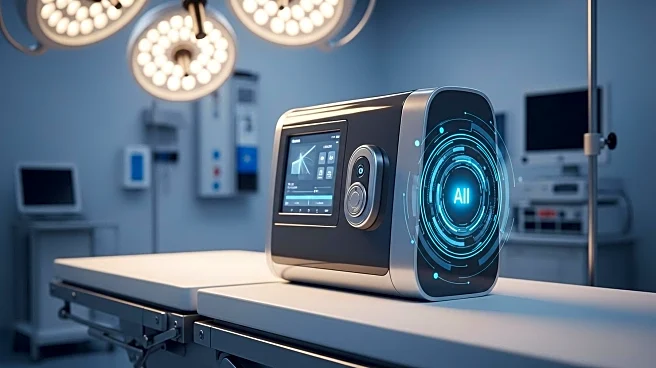What's Happening?
At AdvaMed's The MedTech Conference, executives from leading medtech companies discussed the integration of artificial intelligence (AI) into medical devices and internal operations. Stryker, for example, is using AI for badge alerts in patient rooms and developing surgical technologies. Insulet is leveraging AI for customer care and aims to use data for personalized medicine. Hologic is applying AI in breast imaging to assist radiologists, while Olympus is using AI for colorectal polyp detection and internal productivity tools. These initiatives highlight the growing role of AI in enhancing both product offerings and operational efficiency within the medtech industry.
Why It's Important?
The integration of AI into medtech devices and operations represents a significant advancement in healthcare technology. AI can improve diagnostic accuracy, streamline workflows, and enhance patient care. For companies, AI offers the potential to reduce costs and increase efficiency, making healthcare more accessible and effective. As AI continues to evolve, it could lead to more personalized and precise medical treatments, ultimately improving patient outcomes and transforming the healthcare landscape.
Beyond the Headlines
The adoption of AI in medtech also raises important considerations around data privacy, ethical use, and regulatory compliance. Companies must navigate these challenges to ensure that AI technologies are implemented responsibly and effectively. Additionally, the shift towards AI-driven solutions may require workforce retraining and adaptation to new technologies, impacting employment and skill requirements in the healthcare sector.











